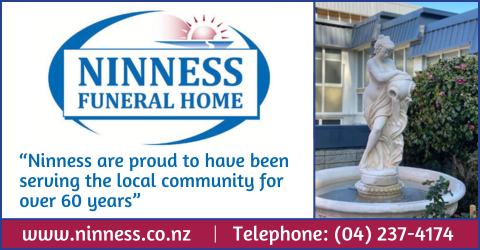

A group of Porirua GPs are sounding alarm bells after patients with body mass indexes (BMI) of more than 35 were declined specialist appointments at Wellington Hospital and fear it is a tactic to manage waiting lists.
Three GPs, all based in Porirua, told The Post their patients had been rejected for general and orthopaedic surgeries based on BMI, including two GPs whose patients had been barred from seeing a specialist at all, with BMI cited as the sole reason.
“It appears … they’re not willing to see patients who would potentially go on to their waiting lists and make them look bad, then they can’t meet the rigid criteria they are having to adhere to,” experienced Porirua GP, Dr Sarah Leilua said.
One of the Government’s five health targets aims to get 95% of patients waiting fewer than four months for a first specialist assessment – which is what these patients are being referred for. Latest results show 68% of Wellington patients met that criteria.
No one from Health NZ – Te Whatu Ora would be interviewed, but in written statements, clinical planned care lead Derek Sherwood denied the claims, saying “referrals are not declined on BMI alone”.
But in a rejection letter The Post has seen, a patient this month was declined a referral from a general surgeon with BMI listed as the sole reason.
“BMI above department guideline (35). Patient is unlikely to be offered surgery.“
Leading GP Dr Bryan Betty recalled at least three of his patients receiving these letters in recent months and said the trend was increasing.
“They’re using a single indicator of BMI and saying, surgery wouldn’t be offered in this situation.“

Sherwood accepted the letter “indicates the patient was declined because of BMI” but argued “it doesn’t indicate BMI to be the only criteria”.
“Rather, for this particular patient, it will be the main criteria that would affect their suitability for surgery and a successful outcome,” Sherwood said.
Betty said that was missing the point.
“The GP is referring to the hospital for a reason. Whether they get surgery or not is down the track. You can’t just say no, we won’t get the second opinion based on BMI.”
Sherwood said some surgeries considered BMI as a more important factor for success “and patients generally must meet certain criteria before a specialist referral is accepted”.
He said that was usual practice and the criteria hadn’t changed, which failed to explain why GPs had noticed the increase in rejections.
There were also different BMI cutoffs depending on the department, Betty said. A BMI of 35 seemed the cutoff for general surgery, 40 for orthopaedics and 55 for bariatric surgery.

BMI is a blunt tool used to measure the size of a person by dividing their weight in kilograms by their height in metres squared. The scale states any number less than 18.5 is underweight, anything higher than 25 is overweight, and 30 and above is obese.
A third GP, Dr Nadine Kuiper said very few of her patients would have BMIs of less than 30. She had received several letters, mostly for knee surgery referrals, saying “refer back when they have lost weight”.
“It means they are missing out on a knee replacement and then being bed bound and not able to work.
“Sometimes that word from a specialist is that extra motivation they need to lose weight.”
Given the BMI scale was designed in the 1800s after taking measurements from white, European men, there is ongoing debate on whether there should be different cutoffs for non-white people, including Māori and Pasifika – who make up about half of Porirua’s population.
“If you’re using that one health indicator, it will definitely be discriminatory towards Maori and PI populations,” Leilua, who is Samoan, said.
The trio are among a group of GPs preparing a letter to Wellington’s chief medical officer concerned the rejections represent a blanket refusal for treatment, which they say leads to preventable suffering and worsens inequities.
Leilua said going private was simply not attainable for most of her patients.
“We would hope our colleagues would at least review these patients and make a determination of whether they’d be eligible for surgery based on the entire picture, not just on a BMI,” Leilua said.

Dr Luke Bradford, medical director of the Royal NZ College of GPs, said one method of meeting waiting time targets was by controlling access to waiting lists, which was “cynical and not based on clinical need”.
“Whilst individual decisions on the suitability of any given patient for any given operation should absolutely lay with the surgical team, arbitrary cut-offs without even meeting with the patient is discriminatory and results in an increasing unmet need.”
- The Post




































